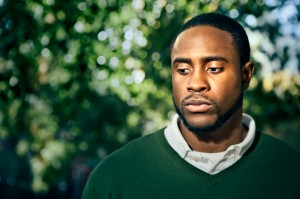Life-Affirming Death Awareness
 When I was a teenager, I realized that most people were living as though death did not exist. I saw men and women trivializing their relationships and lives with petty arguments and melodramatic reactions to insignificant events, while failing to notice basic issues of personal identity and ignoring existential realities. Their passivity, conformity, and inward lifestyles indicated their lack of regard for themselves as unique, feeling entities.
When I was a teenager, I realized that most people were living as though death did not exist. I saw men and women trivializing their relationships and lives with petty arguments and melodramatic reactions to insignificant events, while failing to notice basic issues of personal identity and ignoring existential realities. Their passivity, conformity, and inward lifestyles indicated their lack of regard for themselves as unique, feeling entities.
As a boy, I shared a room with my grandfather and as he got older, he was afflicted with various physical ailments. He would cough and moan in his sleep and sometimes he would sound like he couldn’t catch his breath. At those times, I would wait with mounting suspense until his breathing would return to normal. Sometimes there would be a loud gasp, like a death rattle and I would be sure that he was gone. He had trouble with his eyesight and I would imagine what it would be like to lose my vision. It tortured me to picture a life of blindness. The thought of being deprived of all images was akin to death, a kind of living death. I realized that at some future date, the clock would advance and it would be my turn to sit on the edge of life, close to the ominous event.
My grandfather had lived with my family since I was born and so I knew him well. He had spent his life in a kind of half-dazed, yet somehow contented, state of mind, and now he was nearing the end. It seemed like he had no real sense of his impending death. I dreaded the possibility that he might suddenly wake up one day as from a sleep and realize that he was at the end, that only yesterday he had been a boy like me, and that he had spent the intervening years not really living. I was terrified that he would recognize then that he had wasted his life in meaningless grievances, family disputes, and long, tedious hours at a job he hated. He would be struck by the realization that it was too late-that there was no time left to live.
To my mind, this would be the most horrifying thing that could happen to my grandfather. I hoped that he would not “wake up” but just die peacefully without this unbearable realization. The years passed and he died, leaving me with a lasting impression of a man who had missed his own life.
From this experience came a strong motivation on my part to try to live differently than my grandfather. I never wanted to be faced with the kind of final realization that I had dreaded for him. I wanted to experience all the facets of my life, the bad and the good, all of the painful and joyful events.
****
In the first chapter of Beyond Death Anxiety: Achieving Life-Affirming Death Awareness, I described my impressions of my grandfather’s life because the story draws attention to a central theme in the book: the fact that most of us attempt to escape from death concerns by avoiding life. This defensive denial of death has profoundly negative consequences for each person’s life.
Most people spend their lifetime without a great deal of self-awareness, living lives of emptiness and drudgery based on their early programming. They rarely reflect on their circumstances but rather are addicted to a lifestyle of form and routine. Few develop a life plan or project that gives value, substance or meaning to their daily lives. Humans are a meaning-seeking species, and when this experience is limited or excluded, they are deprived of their human heritage.
Death denial has other destructive complications. Religious faiths that offer the promise of an afterlife provide comfort but tend to polarize people of different beliefs against one another. People are threatened when their defensive resolutions of the death issue are challenged by nonbelievers. They become hostile and aggressive when their defenses are disrupted by people with different attitudes and customs. Much of the destruction caused by warfare and ethnic cleansing is due to these defensive machinations.
In some sense, all people maintain a belief that they will not die despite conscious awareness to the contrary. In their magical thinking, free from logical constraints, they are able to maintain the fantasy or dream of immortality in their unconscious minds. Certain attitudes and belief systems support the illusion whereas other events and circumstances challenge it. For example, moving along the life cycle from childhood to maturity, separation experiences that make us aware of our aloneness, and signs of aging and ill health dispel the illusion; whereas religious beliefs, an imagined fused identity in personal relationships, vanity, and fantasies of omnipotence help to maintain it. When this internal fantasy process is disrupted, the original suppressed fear reaction is activated and there is considerable hostility directed toward the source.
In my book, I suggest that an acceptance of death and dying as a reality and an awareness of the typical defenses that people develop to counter the dread can be life-affirming rather than leading to cynicism or depression. Challenging psychological defenses formed in childhood and reinforced by death anxiety can lead to more personal satisfaction in living and expand the opportunity for self-realization. Facing one’s mortality and feeling the appropriate emotions of sadness, anger, and fear can give greater meaning to life and make it all the more precious. This awareness also places one’s experience in perspective and helps to avoid trivializing one’s existence.
However, when we break through our defensive barriers, there is always tension and anxiety and a marked tendency to experience painful death awareness. Uniquely positive events make us appreciate the value of life, but are also a reminder that life is temporal. The more we invest in life and love, the more we achieve, the more we are valued, and the more we acknowledge our existence, the more we are reminded of our eventual non-existence. When we love life and the people closest to us, we must mourn the ultimate loss of loved ones and ourselves.
In the conclusion of Beyond Death Anxiety, I propose that it is better to face the truth, however ugly or painful, than to resort to defense formation. The irony of the neuroses, character disorders, or psychoses is that an individual’s psychological defenses that were adaptive to negative conditions of childhood later become the source of the maladaptation or disease.
All people are faced with the same existential dilemma. We are all separate and alone, cursed with the consciousness of our own eventual demise and must overcome the same obstacles to maintaining our independence, our spirit, and our integrity. By acknowledging death as a reality instead of resorting to defensive denial, we can best meet these challenges and embrace life more fully. People everywhere confront the same essential problems and struggle for survival. Therefore, we are all brothers and sisters, and there is no room for indifference to those people suffering from starvation and poverty, and in addition, there cannot be resignation to manifestations of prejudice, ethnic strife or actual warfare.
Tags: death anxiety, death awareness, existential, Life Affirming Death Awareness









Leave a Reply